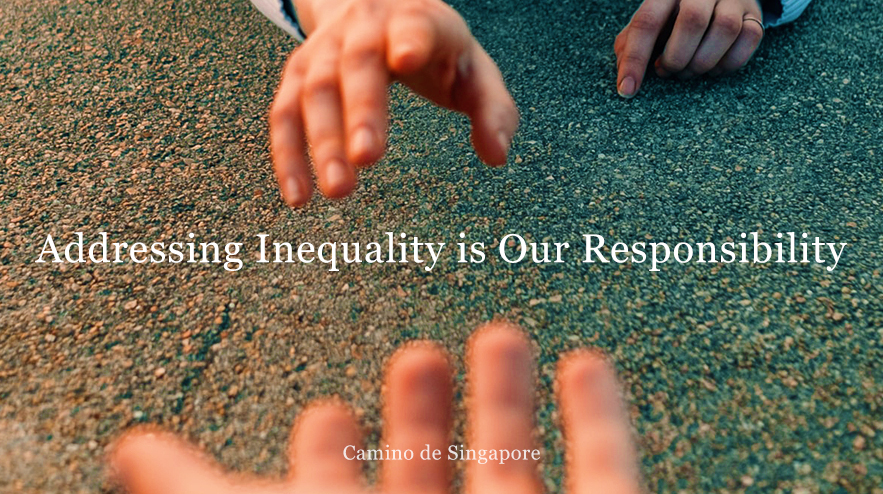No products in the cart.

I feel deeply uncomfortable.
Here I am in the comforts of my own room, working from home on my laptop while there are people out there, who were already struggling to make ends meet before, experiencing reduced income or job loss. Now they are worrying even more about their next meal and how to provide for their family. Even for low-income parents who are still employed, some now fear infecting their children unknowingly due to their jobs and lack of living space allowing safe distancing in their small, rental flats.
This disparity between my life and the lives of vulnerable families could not be more pronounced. Facing this reality, in all its starkness, is discomforting. But the greatest discomfort comes from knowing that the gap will only widen if timely, sustained support is not given.
In an academic article, Dr Teo You Yenn and Dr Ng Kok Hoe pointed out that low-wage workers and their families do not have substantial savings to cushion themselves from the economic impact of COVID-19. “Without monetary buffers, suddenly reduced incomes can affect their ability to manage mortgage payments, children’s educational expenses, and other basic needs like healthcare and food.” They suggested strengthening social policies to enable individuals to cope with future financial shocks and reduce the resources needed for drastic crisis measures.
We should care and act because the well-being of everyone is interconnected.
The Straits Times editor-at-large Han Fook Kwang painted a vivid picture: “Think of the virus as a metaphor for the social ills spread by society’s inequality and it is easier to understand why the problems of any one group – the poor, aged or vulnerable – will infect others and finally the entire society… You can’t quarantine their problems from the rest of society. Sooner or later, they will become everybody’s.”
It is painful that we needed a virus to teach us these lessons because the call to tackle inequality is not new.
Not only has it been discussed extensively over the years, but also repeatedly taught by the Catholic Church. The Principle of Solidarity, for example, tells us that we are one human family, and thus are responsible for all. Another is the Church’s teaching on “preferential option for the poor”; to put the needs of the poor and vulnerable first.
In other words, as Catholics, we ought to know that addressing inequality is our responsibility. Not charity or benevolence, which can be withheld or revoked, but our collective responsibility and duty to the poor. Because when we meet their needs, we are merely giving them what is theirs to begin with. We are merely “paying a debt of justice”.
Facing my privilege is uncomfortable, but necessary. It has been a great source of energy fueling my social service work, and it will continue to be so long after the crisis lifts, until the debt is fully paid.
I hope you feel this discomfort, too.
Related Stories
Jorain Ng is part of the Advocacy and Research team at Caritas Singapore. She thinks she should have been born in the groovy 80s and can often be found listening to Abba and Bee Gees songs.
